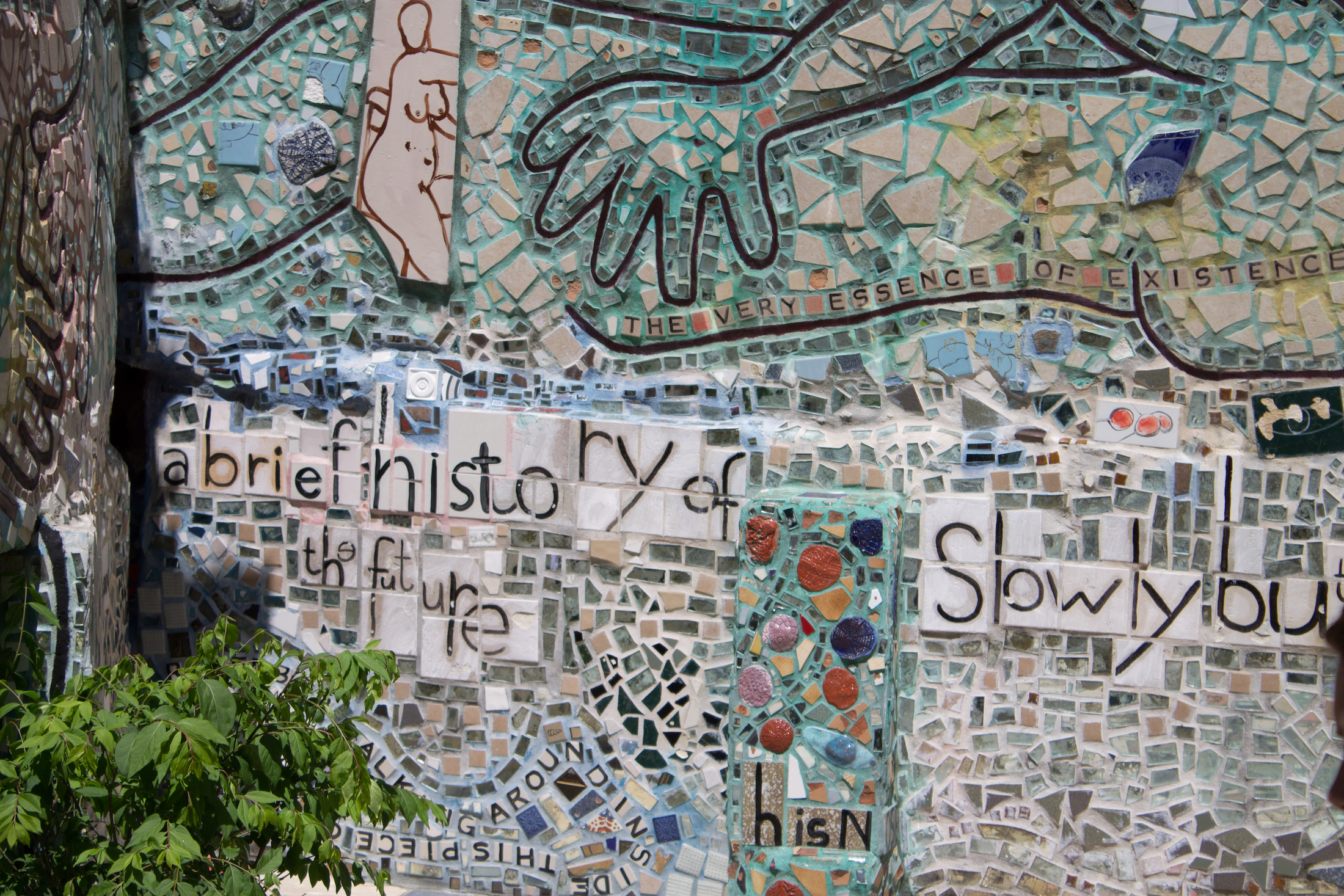Settling in to work together on our new project, unbinding conventional assumptions of teaching and learning, buoyed up by our collaborative process—it’s actually the pronouns that snag us first. We begin with the first person plural. It’s the first— and probably most repeated, though who’ll do the count?—word in our book:
We write collaboratively as two experienced teachers… .
We draw on stories from our own teaching… .
we describe…
we argue…
…seeking the sorts of spaces many of us both resist and long to explore, where our histories, nightmares, and desires “blow our covers” as rational subjects.
—Anne and Jody, Introduction
As soon as we begin to share our work, friends write back,
Drafting successive chapters, we begin to notice just how much that “we” moves, how slippery, shifting its referents.
Sure, sometimes it’s just us two.
Sometimes it’s a fairly comfortable extension: us and our students.
Sometimes it’s our colleagues. Sometimes we try to reach way beyond those we know, make claims about, ask questions of, college teachers who attend conferences:
Why are we reading, too much, too quickly, words that cannot be heard, understood, followed at such a pace? Why aren’t we making space for back-and-forthing, for co-creation and exploration?
—Anne, “Silencing”
Sometimes (as in those quotes bothering one of our colleagues, above), the claims are much grander.
Sometimes we risk speaking for radical educators:
We are critical of the political and economic arrangements… . We teach to question and challenge the system we work within.
—Jody, “Haunting”
All learners, all humanity:
The persistence of this leakage…plays on a disquiet we work hard to keep at bay: the impossibility of fully knowing, containing, controlling our worlds, our immediate surrounds, ourselves.
—Jody, “Leaking”
What Bruno Latour calls the problem of “how to tell” our common story continues to bedevil us.
We start working backwards. Re-thinking every “we” we’ve written. Re-writing. Cutting. Pruning.
Not wanting to over-generalize, determined to be more honest, to claim only what she knows experientially, I try switching over to “I.”
There’s a clarity here. The scope is smaller. The claims more manageable. The writing goes more quickly.
And almost immediately, I recall Virginia Woolf’s indictment of the language of educated men:
Jody allows as how she doesn’t really like the so-insistent “I.” She wants to make claims beyond the biographical, say something more embracing of others. Explore what lies in that shadow, bring the “landscape behind it” to the fore.
Paula Gunn Allen lays out this process of looking for what has been background, aiming towards “equilibrium of all factors,” the “even distribution of value among all elements in a field.” As the focus of the action shifts, the “foreground slips along from one focal point to another until all the pertinent elements in the…conversation have had their say.”
“I” sounds so certain. Doesn’t much allow for the latitude of such possibilities.
…that nagging feeling that something is being left out of the way we know things.
—Theodore Adorno, reprised in “Reassembling”
We challenge the supposition of a stable self (one that knows itself, is secure in that knowledge, and able to make it transparently known to others).
—Clare, Kevin, Jody, Anne, “Reassembling”
Can we begin in the personal, while reaching out behind and beyond it? Isn’t it unconscionable, not to?
Gesturing towards what we-don’t-quite-know? Speaking to the social, the political?
Modeling yourself on Claudia Rankine’s wonderful language you decide to experiment with “you,” to risk opening Chapter One of your book,
Some feel drawn in by this. Whatever your experience, you are now written into the story.
For others, it is disruptive, causes confusion.
Your colleague feels strangely displaced, cut out by references to “your colleague with whom you’ve been in this every step,” as “you follow your colleague’s direction.”
Others feel differently excluded. Later on in the essay,
Sort of the point, as our friend Joel Schlosser wonderfully explains in his own reading of Citizen,
The “you” here has multiple functions: we cannot label these as Rankine’s experiences, different from our own; if these thoughts seem strange to us we feel pressure with the pronoun to identify at least some commonality; these are not merely confessional lines because they address us so directly.
In interviews, Rankine describes her use of the second person pronoun as an attempt to disallow readers from knowing immediately how to position themselves. Whereas the first person would have deactivated the scene by allowing for immediate identification or disidentification, the second person…forces the reader to consider how and why they might apply a racial identity.
While you are busy inviting your readers to re-consider who they—and you—and we—are, y/our students are taking up another pronomial gambit, a profound expression of their own shifting explorations in gender identity, putting into circulation the newly emerging, increasingly popular-and-accepted form of the pronoun “they.” Using the singular “they” marks their refusal to be confined to conventional gender binaries. Still hearing the term as plural, we stumble over the usage when they request it; writing this “they,” we are also a little worried that our readers will think we don’t know how to write, don’t know our grammatical rules.
There’s the shadow of another history here, too, which “proper” grammar polices: “they” so long embedded in “them and us”; too often, too obviously and uncomfortably used as the opposite of those on the inside: “we.”
Those on the “outside” who, as Sara Ahmed makes clear, are welcomed by “us,” those who feel at home, “on condition they return that hospitality…allowing institutions to celebrate their diversity.”
No group gathers at Bryn Mawr these days without a round of introductions that includes names and preferred pronouns. One student risks challenging the practice: is gender so important? Is that really always how we want to be known and identified? Joel muses about stereotype threat: if we lead always with our gender, are we priming ourselves for certain behaviors, the risk of conforming to stereotypes about our social group?
Some people find pleasure in aligning themselves with an identity… . But there can also be a horror in doing so, not to mention an impossibility.
—Maggie Nelson, The Argonauts
Pronouns are tricky business.
Another friend, Eric Raimy, explains this in terms of linguistics, which distinguishes between “content” (verbs, nouns, adjectives, adverbs) and “function” words (pronouns, determiners, prepositions), which signal the structural relationships in sentences. The former are “open,” the latter “closed,” and the difference between them distributional: “you can create new nouns and verbs easily but it is very difficult, if not impossible, to create new prepositions, determiners, pronouns.” Stephen Pinker adds, “function words form a closed club that resists new members. That is why all attempts to introduce gender-neutral pronouns…have failed.”
Pronouns are hard to change.
This book is grounded in, arises out of, attempts to instantiate environmental claims about fluidity and porosity. It testifies to the absence of outsides, the limitlessness of connections.
“Self” and “environment,” “classroom” and “world,” “teacher” and “student” are all transactional, malleable categories, imbricated in one another. Conceptualizing the boundaries of the classroom as permeable, we look to bring the complexity and unknowability of selves, and the complexity and unpredictability of the medium in which they live and learn, into the classroom and out again.
—Anne and Jody, Introduction
In such a world, pronouns necessarily slip and slide. Are of uncertain referent.
As are we all.
Though some of us resist.
The question of who is included, and how, is problematic, reaches beyond the pronomial.
As we finish drafting each chapter, we ask everyone who is mentioned by name, as well as everyone whose words we’ve cited at any length, to review what we’ve written, and let us know if (and if so, how) they want to be referenced. We invite each of them to write into the text, to add explanations, qualifications.
Our invitations are not comprehensive, though. Many of the lapses are underwritten by social and structural inequities. We don’t ask Bryn Mawr administrators for their take on our stories of the college. Or request that the women serving time in jail review the text. Or the villagers, our artistic partners, who are developmentally delayed; could they understand what they would be giving permission for?
All these are nameless here.
We depend on their stories.
As we do on those of colleagues who respond.
Our friend Kristin Lindgren, who appears several times in the text, and enjoys how “fully peopled” it is, suggests that we describe the complicated process of asking people like herself to accede to our representations of them.
Writing, revising, sending out, listening, revising again is fertile—and challenging. A recent alum, completing her first year as a teacher, is excited to see what she calls the “time capsule” of her “first-year self, taking on hard conversations and paper assignments.” Another student surprises us by their willingness to be represented in a state of open vulnerability. Yet another shares their concern about how white professors might gain from the use of their words, as a person of color. A colleague who suggests accentuating our marginal positioning at the college (which she shares), finds it less helpful on a second reading, not “porous” or “ecological” in the terms the book explores. Another disagrees strongly with how we tell a story in which we all play a part; another feels left out of our storytelling; quite a few express pleasure at their appearance here, and how we’ve represented their contributions to a larger story.
This plethora of reactions, many from readers who are characters in the tales we tell, incites a set of provocative questions from Ann Dixon, who has accompanied us throughout the inception and completion of this project:
We’re filled with pleasure, regret, and, always more questions, as we work through each instance of telling, knowing that it all is further grist for a collective mill.
Good ecology uses everything, including banana peels, Pepsi cans, and emotions. We need to recycle everything we use, neglecting and throwing away nothing. Ordinary feelings you have while walking down the street are sacred. … To practice good ecology, we have to follow the neglected, the unpredictable, the numinous, and everything that catches our eye.
—Arnold Mindell, The Leader as Martial Artist
This open website invites further re-writing.

